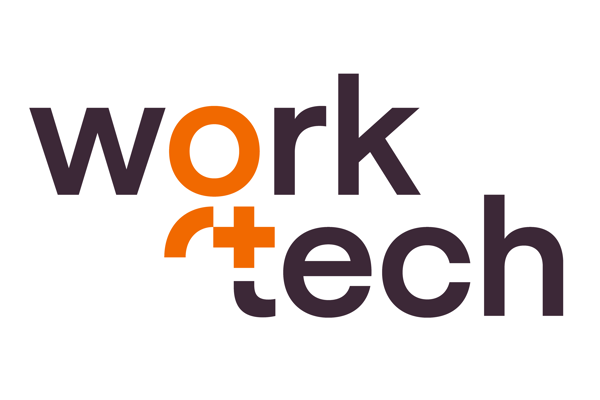The care innovation program WorkTech – Labor-Saving Innovations for Health, Well-being, and Care has approved six public-private partnership projects. Each consortium will receive a €250,000 grant to further develop a labor-saving innovation and implement it in healthcare practice.
Waiting lists, staff shortages, work pressure — the healthcare system is under serious strain, facing a growing capacity problem. And that’s not all: many healthcare professionals report spending more and more time on peripheral tasks, such as administration. This calls for new ways of working.
The urgency of the capacity issue in healthcare is evident from the high level of interest in the WorkTech innovation program’s funding call. More than 40 consortia submitted a wide range of ideas.
These proposals were evaluated by an independent review committee. The WorkTech program team — consisting of Medical Delta, InnovationQuarter, and ZWconnect— combined their knowledge, expertise, and networks to jointly accelerate the development of labor-saving healthcare innovations. WorkTech is co-funded through a public-private partnership (PPP) subsidy provided by Health~Holland, part of the Top Sector Life Sciences & Health, to promote public-private collaboration.
Accelerated development of labor-saving innovations
WorkTech supports labor-saving or workload-reducing innovations in the fields of health, care, and well-being by helping them take a significant step toward real-world application. To achieve this, the innovation program brings together care providers, innovative small and medium-sized enterprises (SMEs), and knowledge institutions in public-private projects.
The knowledge institutions involved in these public-private partnerships provide the necessary evidence and scientific foundation. To accelerate the path toward actual implementation and usage, care practitioners are involved from the very beginning. This ensures proper integration and alignment of the innovations within existing workflows — a key challenge for many healthcare innovations. Finally, through collaboration with innovative SMEs, WorkTech also gives a boost to the Zuid-Holland economy.
From a robot for preparing breast milk to easing ICU administration
The topics can be broadly divided into three categories: reducing the demand for care through earlier detection or treatment, reducing administrative and logistical burdens, and solutions aimed directly at supporting healthcare professionals themselves.
The independent review committee ultimately selected the following collaborative projects:
Delphyr Co-Pilot: Smart AI Assistant to Reduce Workload in Intensive Care Units
Participants: Delphyr BV, Erasmus MC
Delphyr Co-Pilot is an AI assistant that automates administrative tasks in intensive care units. At Erasmus MC, the system is being tested for its effectiveness, ease of use, and impact on workload and quality of care.
I-Sense: Innovative Skin Tests Enabling Doctors to Provide More Personalized and Effective Eczema Care
Participants: Imcomet, Erasmus MC, TU Delft
With a quick and painless skin test, doctors can measure inflammation in eczema patients in real-time. The goal is to help doctors choose the best treatment for each patient, making eczema care more personalized, effective, and efficient.

NEOPERFECT: A Robot for Preparing Baby Food in Hospitals
Participants: Erasmus MC, Neollie BV, RoboHouse (TU Delft)
NEOPERFECT (NEOnatal and PEdiatric Robotic FEeding ConsorTium) develops and implements an advanced robot to automate the preparation of breast milk and formula for babies in hospitals. By integrating this technology into hospitals, the workload of nurses can be significantly reduced. This allows them to focus more on direct patient care while ensuring consistent and safe milk preparation.
RELIEF: Reducing Labor-Intensive Wound Care Through Effective Prevention of Foot Ulcers
Participants: Secuped BV, TU Delft, LUMC
Diabetic foot ulcers are open wounds or sores on the feet of people with diabetes. They have a severe impact on patients’ quality of life and require more than one million home wound care visits annually. RELIEF investigates how home monitoring can be integrated into the healthcare system and, in a clinical study, optimizes alert criteria to balance clinical outcomes and workload.

SMART-EMP: Smarter Eye Exams with Eye-Tracking – Faster, More Reliable, and More Accessible Detection of Visual Field Loss
Participants: Erasmus MC, TU Delft, Rotterdam Eye Institute (Het Oogziekenhuis Rotterdam), Purple Gaze Europe BV, Optiek TOM
SMART-EMP is developing a fast, user-friendly method for visual field testing that uses eye movements instead of button presses. This innovation enables earlier detection of eye conditions such as glaucoma, reduces the pressure on healthcare, and makes screening more accessible for elderly people and those with motor or cognitive impairments.
Sp/GRR: Innovation in Maternity Care in Rotterdam through Risk-Based Hybrid Care and Smart Decision Support
Participants: Erasmus MC, Rotterdam University of Applied Sciences, DEARhealth
The project Smart Prenatal / Maternity Care Region Rotterdam (Sp/GRR) employs hybrid care and decision support based on risk assessments. This increases the efficiency and quality of regional maternity care. In collaboration with Erasmus MC, Rotterdam University of Applied Sciences, and DEARhealth, it improves access to care—especially for vulnerable groups—and reduces the workload for healthcare providers.
For more information, visit Zorginnovatieprogramma WorkTech | Medical Delta

